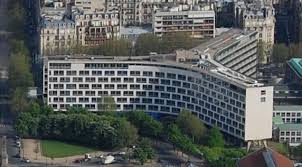Understanding the Role of UNESCO Headquarters

Introduction
The UNESCO Headquarters, located in Paris, France, is a critical institution dedicated to promoting education, cultural exchange, and scientific collaboration among nations. As an agency of the United Nations, UNESCO, or the United Nations Educational, Scientific and Cultural Organization, plays a vital role in fostering international cooperation in these crucial fields. With the growing need for global solidarity in education and cultural preservation, understanding the role and function of the UNESCO headquarters has become increasingly relevant.
Significance of UNESCO Headquarters
The UNESCO headquarters features a modern architectural design and hosts numerous conferences, meetings, and cultural events aimed at addressing global challenges such as education gaps, cultural heritage preservation, and scientific research. The organization has been instrumental in implementing various programs, including the Education for Sustainable Development initiative and the Man and the Biosphere programme, which seeks to integrate the relationship between people and their environments.
In the aftermath of the COVID-19 pandemic, UNESCO has increased its focus on digital education and lifelong learning, recognizing the evolving needs of learners worldwide. Events held at the headquarters often bring together policymakers, educators, and researchers to share their insights and collaborate on innovative solutions to these urgent issues. Additionally, UNESCO highlights significant global events such as International Literacy Day and World Cultural Heritage Day, celebrating the accomplishments and challenges faced by its member states.
Recent Developments
As of late 2023, UNESCO continues to expand its initiatives, particularly in countries struggling to recover from the educational disruptions caused by the pandemic. In recent months, the organization has announced new partnerships with technology firms to enhance remote education capabilities for disadvantaged populations. Furthermore, discussions have intensified surrounding the protection of cultural heritage in conflict zones, with UNESCO spearheading efforts to create strategies for safeguarding historic sites and artifacts.
Conclusion
In conclusion, the UNESCO headquarters remain a pivotal site for global dialogue and action concerning education, science, and culture. As the world faces complex challenges, the role of UNESCO in fostering cooperation and addressing these issues is more important than ever. Readers can anticipate continued efforts from UNESCO to adapt to the evolving landscape of education and cultural preservation, thereby ensuring a more connected and informed global community. The headquarters stand not just as a building, but as a symbol of hope and collaboration for countries striving to enhance their educational and cultural frameworks.









